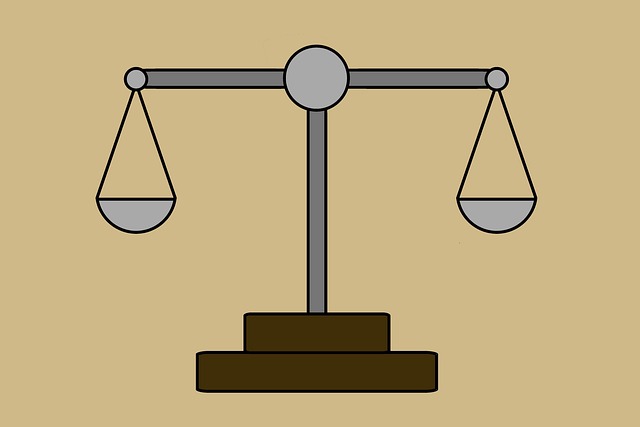In Oregon, grandparents seeking access or protecting their rights must understand and navigate a specific legal framework. This involves filing a petition with the juvenile department or family court, outlining reasons for access, and prioritizing the child's best interests. Key steps include timely filing, gathering comprehensive documentation, attending initial hearings, understanding court judgments, and utilizing available resources like Oregon Law Help, community centers, support groups, and legal aid societies to simplify the complex court process. SEO keywords: Oregon court process grandparents, grandparent rights court process, understanding court process Oregon, legal process grandparents Oregon, navigating court process Oregon.
Navigating the legal system can be daunting, especially when it involves complex matters like grandparent rights in Oregon. This comprehensive guide is designed to help grandparents understand and successfully navigate the Oregon court process. From recognizing your rights, initiating legal actions, gathering essential documents, preparing for hearings, to post-hearing procedures, this article covers every step. By familiarizing yourself with the court process, you can ensure the best outcome for your family.
- Understanding Grandparent Rights in Oregon: An Overview
- Initiating the Legal Process: Who Can File and When
- Gathering Necessary Documentation for Court
- The Court Hearing: What to Expect and How to Prepare
- Post-Hearing Steps: Judgments, Appeals, and Next Steps
- Resources and Support for Grandparents Navigating Oregon Courts
Understanding Grandparent Rights in Oregon: An Overview

In Oregon, grandparent rights are recognized and protected under specific laws, offering a clear framework for understanding the court process when grandparents seek access to their grandchildren. The state’s legal system provides a structured path for grandparents to navigate, ensuring their involvement in a child’s life is considered fairly. This process involves familiarizing oneself with Oregon’s Family Law, which outlines the rights and procedures related to grandparent visitation and custody.
Understanding the court process is crucial for grandparents who wish to exercise their rights. It begins with filing a petition in the appropriate Oregon court, setting forth reasons and justifications for grandparent involvement. The court will then assess the matter, considering the child’s best interests and the strength of the grandparent-grandchild relationship. This overview highlights the initial steps, but navigating the legal process requires diligence and an understanding of the laws to ensure a positive outcome.
Initiating the Legal Process: Who Can File and When

In Oregon, initiating the legal process to establish or protect grandparent rights involves a specific set of steps and requirements. Grandparents or other relatives seeking court intervention must file a petition with the appropriate Oregon court, typically the juvenile department or family court. The timing of this filing is crucial; it’s recommended to consult a lawyer as soon as possible after recognizing the need for legal action. Understanding when to act is essential, as there are time limits within which petitions can be filed to ensure grandparent rights are protected.
The petition should clearly outline the circumstances and reasons behind the request, including any relevant history and the specific grandparent rights sought—such as visitation, custody, or access—and why these rights should be granted. This process requires careful navigation of Oregon’s court system, which is why many grandparents opt to seek legal counsel experienced in family law and grandparent rights to ensure their case is presented effectively and in compliance with local laws and regulations.
Gathering Necessary Documentation for Court

When embarking on the legal process to establish or protect grandparent rights in Oregon, gathering comprehensive documentation is a crucial step. This involves collecting and organizing various documents that will be instrumental in presenting your case effectively before the court. Start by compiling birth certificates for both the grandchild and their parents, as well as any existing legal paperwork related to custody or visitation, including previous court orders or agreements between the parents.
Additionally, consider obtaining medical records, school transcripts, and other relevant documents that highlight the grandparent-grandchild relationship and the child’s overall well-being. These can provide valuable insights into the child’s life and the positive impact of grandparent involvement. Ensure all documents are up to date and accurately reflect the current circumstances to facilitate a smooth understanding of the court process in Oregon regarding grandparent rights.
The Court Hearing: What to Expect and How to Prepare

When facing a legal battle regarding grandparent rights in Oregon, understanding what to expect during the court hearing is paramount. The initial hearing is a crucial step where both parties present their cases, and the judge makes an initial decision or sets further procedures. Being prepared can significantly impact the outcome. Grandparents should gather all relevant documents, such as proof of relationship, medical records, or any other evidence that supports their case. It’s also beneficial to prepare a clear and concise argument outlining why they should be granted visitation or custody rights.
During the hearing, lawyers for both sides will present their arguments, and the judge will ask questions to gain clarity on the matter. Grandparents are advised to remain calm, respectful, and honest throughout the process. They should anticipate potential questions about their relationship with the child, any previous legal issues, and their ability to provide a stable environment. Being well-prepared and organized can help grandparents navigate the Oregon court process effectively and increase their chances of achieving a positive outcome regarding their grandparent rights.
Post-Hearing Steps: Judgments, Appeals, and Next Steps

After the hearing, the judge will issue a decision, which is known as a judgment. This document outlines the outcome and any specific orders related to grandparent rights. It’s crucial for grandparents to understand and carefully review this judgment, as it details the next steps and any appeals processes available.
If either party disagrees with the court’s decision, they may have the right to appeal. Navigating the appeal process in Oregon requires legal expertise, and grandparents should consult with their attorney to determine if an appeal is warranted and the best course of action. Understanding the court process in Oregon is essential for ensuring grandparent rights are protected and for making informed decisions moving forward.
Resources and Support for Grandparents Navigating Oregon Courts

Navigating the Oregon court process as a grandparent can be daunting, but there are numerous resources available to support them throughout this journey. Organizations like the Oregon Law Help website offer detailed guides and information tailored to grandparent rights and the court process. These resources provide an understanding of the legal framework, helping grandparents grasp their rights and obligations. Many local community centers and non-profit organizations also provide assistance, offering workshops and one-on-one counseling sessions to guide them through the complexities.
Support groups for grandparents facing similar situations can be invaluable. These networks offer a safe space to share experiences, gain insights, and find encouragement from peers who have successfully navigated the Oregon court process. Legal aid societies and advocacy groups dedicated to family law are also excellent resources, providing pro bono services or affordable legal representation to ensure grandparent rights are protected throughout the proceedings.













